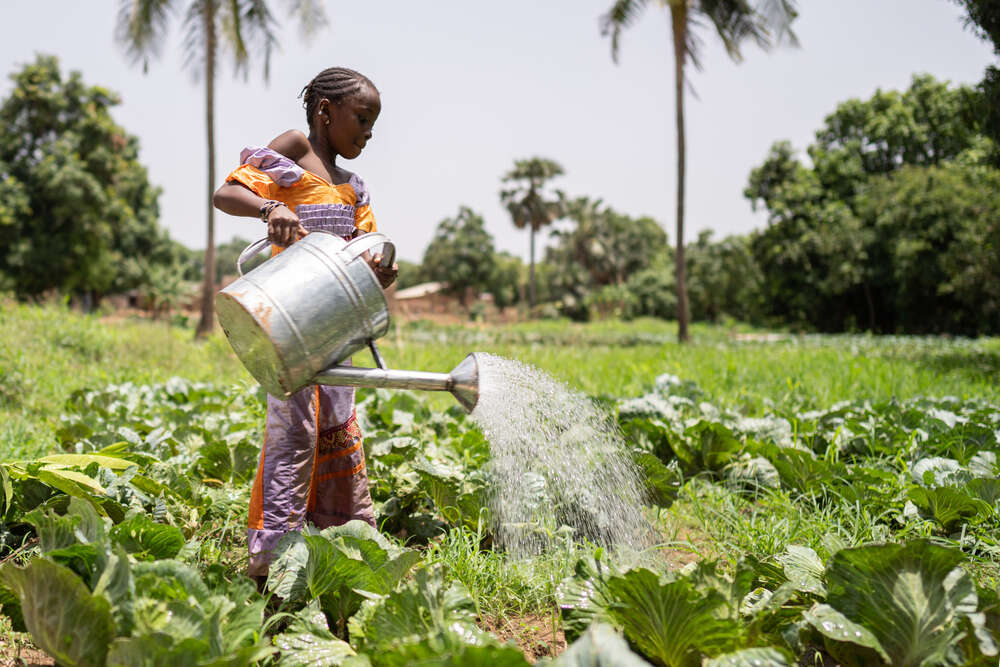

- The UAE has committed to purchasing $450m of carbon credits from the Africa Carbon Markets Initiative.
- Africa issued 279m tonnes of carbon credits in 2022.
- The pressures on the carbon credit market mean that carbon offsets are in danger of becoming stranded assets.
Earlier last week, the United Arab Emirates (UAE) committed to buying $450m of carbon credits from the Africa Carbon Markets Initiative (ACMI). Sheikha Shamma, president and chief executive of UAE Independent Climate Change Accelerators, who signed the deal, called the carbon markets a “pivotal tool” for the state.
Launched during COP27 in Sharm El Sheikh, Egypt, in November last year, and led by a thirteen-member steering committee of African leaders, chief executives, and carbon credit experts, the ACMI was set up to support the growth of carbon credit production and create jobs in Africa.
It wants to produce 300m carbon credits a year by 2030 and intends to generate $6bn in revenue and 30m jobs by 2030. Each credit is equal to one metric tonne of carbon dioxide equivalent.
It is getting there. Current signatories include the investment bank Standard Chartered, carbon business and partnership platform Vertree, Kenyan conglomerate ETG and restaurant group Nando’s, with an estimated $200m collected for the purchase of African carbon credits by 2030 so far.
The deal was signed on the first day of Africa’s first climate summit taking place last week in Nairobi, Kenya.
“Africa’s abundance of wind and solar energy can power our development, creating jobs, protecting local economies, and accelerating the sustainable industrialisation of the continent,” said Kenyan President William Samoei Ruto as he welcomed delegates.
While Africa’s per capita emissions are significantly lower than the global average, the continent is disproportionately affected by rising global temperatures. Drought, desertification and cyclones, to name just a few, are causing food shortages, displacement of people and migration.
Many leaders at the conference are throwing their weight behind carbon credits and the voluntary carbon markets. Projects, typically that plant trees, are sold by developing companies with high emissions as offsets to help them meet their targets.
Amsterdam-based Climate Focus, a climate advisory company that collates data from most carbon standards, estimates that total carbon credits issued from the continent reached 279m tonnes of carbon dioxide equivalent last year.
Carbon credits: Opportunity for Africa
“Carbon markets present a great opportunity for African countries to utilise their abundant natural resources to unlock economic value and accelerate sustainable industrialisation and economic transformation and diversification,” said Antonio Pedro, acting executive secretary of the Economic Commission for Africa (ECA), earlier this year.
This was echoed by an August white paper from Nasdaq which pointed out that the region is “full of energy-producing countries where long-term additive projects for removal and storage have the right conditions in which to succeed”.
Since 2010, the African Development Bank (AfDB) has identified and funded a number of projects such as the Windiga 20MW solar PV project in Burkina Faso in 2014, the Lagos Cable Car Transit LCCT Project in Lagos, Nigeria, which reduces fossil fuel use, and most recently in July, a hydropower modernisation project across the continent.
The World Bank has also supported a number of projects across Africa that lower greenhouse gas emissions and earn carbon credits.
These include a project in Rwanda that has distributed 800,000 compact fluorescent lamps over the past eight years which has reduced the equivalent of 21,000 tonnes of carbon dioxide per year and has generated 130,000 carbon credits, as well as the Ankeniheny-Zahamena Corridor Biodiversity Conservation Project in Madagascar. This has generated almost 4m carbon credits and has provided community benefits such as fish farming, improved irrigated rice cultivation, and bean production.
The private sector has not stood idly by either. In Kenya, climate tech company SunCulture uses off-grid solar technology to provide its customers with reliable access to water, irrigation, lighting, and mobile charging, while Burn designs and manufactures fuel-efficient biomass stoves. Both companies have designed carbon offset schemes.
Stranded assets
The problem is the carbon credit market is collapsing.
In January, an investigation by Britain’s The Guardian, German weekly Die Zeit and non-profit investigative journalism organisation SourceMaterial, found that more than 90% of the rainforest offset credits approved by Verra, the world’s leading carbon standard for the voluntary offsets market, were largely worthless.
The bad news didn’t stop there. That initial research was confirmed by an article in the journal Science at the end of August which found that most projects have not significantly reduced deforestation. And for projects that did, reductions were substantially lower than claimed.
In an emailed response to the article, Verra said that none of the information was new.
“Our initial analysis of this version indicates that, despite some minor changes, the overall methodology, results and conclusions are the same – and, therefore, the significant concerns we flagged earlier this year still hold,” it said.
The market was not helped in June when the Commodity Futures Trading Commission’s Whistleblower Office in the US said that it was investigating the market for fraud or manipulation, or at the end of August when Bloomberg reported that the market had effectively frozen on fears that carbon credits were worthless and that traders were looking at carbon credits as stranded assets.
As Capital Monitor argued in July, the problem is regulation. “Existing carbon offset projects lack credibility. This doesn’t mean that carbon credits can’t be more useful in future. Being transparent about what projects actually deliver, rather than what we hope they deliver, is paramount,” says Jonathan Colmer, assistant professor of economics at the University of Virginia.
If that happens, then credibility could be restored.
[Read more: Governments step in to oversee voluntary carbon markets]





